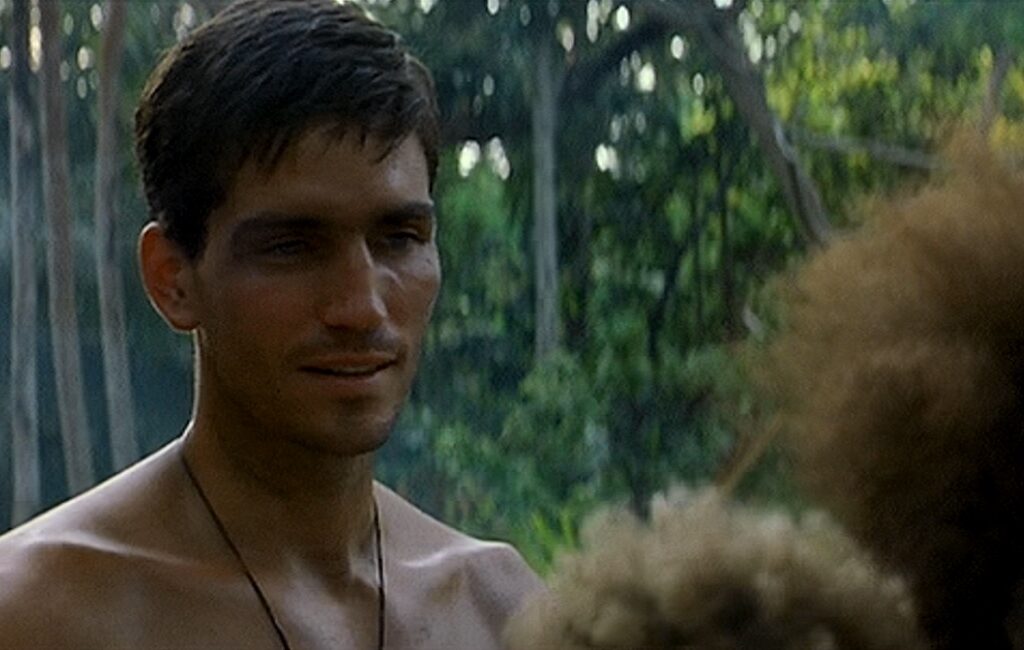A meditation on Terrence Malick’s The Thin Red Line
At the beginning of Terrence Malick’s epic World War II film The Thin Red Line, Private Witt, played by Jim Caviezel, is AWOL on an island in the south Pacific, living with a Melanesian tribe. In those people, he encounters something that he cannot necessarily name – a beauty, peace, love – that overtakes him. He is happy with them – playing with the children, helping to build, swimming in the ocean. And he’s struck by the way they live with each other. Right before he is captured and returned to Charlie Company, he stands by as the islanders walk down the beach, clapping and singing “Jisas, Yu Holem Hand Blong Mi,” a hymn in an English pidgin. Throughout the film, Witt’s encounter with the Melanesian Christians becomes a continual point of reference for him.
After he is picked up, we see Witt in a conversation with Sgt Welsh, played by Sean Penn. “In this world, a man, himself, is nothing,” says Sgt. Welsh, “and there ain’t no world but this one.” “You’re wrong there, top,” Witt responds, “I seen another world.” “Then you’ve seen things I never will.” The Melanesian island is so different from the world of war in which he is immersed that it is as if it belonged to a different reality.
